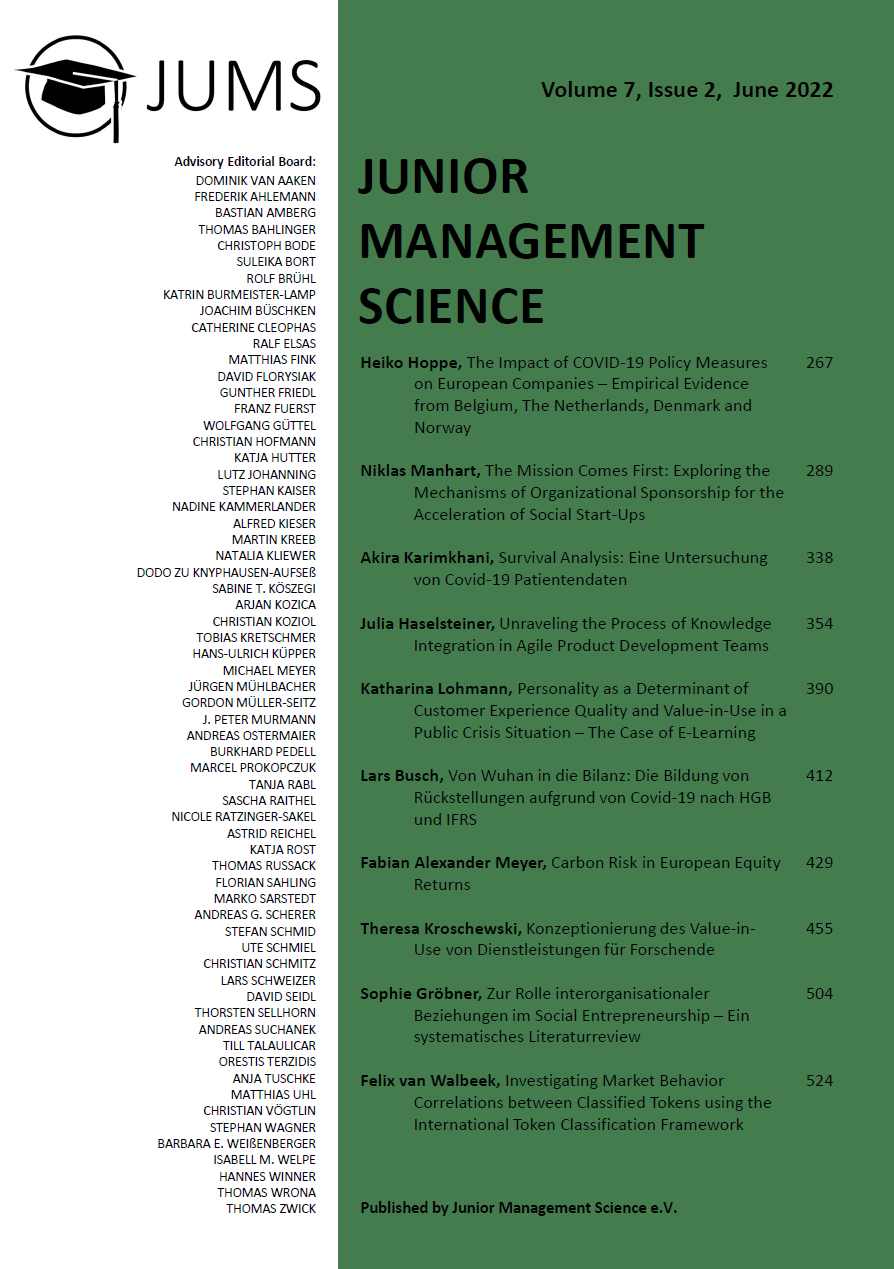Abstract
The aim of this work is to test the feasibility of a model based on survival analysis for Covid- 19 patients. To investigate the feasibility, a Cox regression (CPH-Model) was constructed and evaluated using introduced diagnostic methods and modified using presented extensions. It is shown that disregarding the model assumptions can lead to biased estimation results. Furthermore, a sample analysis of the current literature in which CPH-Model was used revealed that the underlying model assumptions were comprehensibly tested in 40% of the articles reviewed. The novelty value of this work is based on the data analysis showing that the conventional CPH-Model is inappropriate for the Covid-19 dataset studied. In order to apply CPH-Model, the model had to be extended. It was necessary to adjust the functional form of a variable, remove outliers, include time interactions and stratify the data set. Finally, this allowed the creation of a final model that met all assumptions. However, four of the estimated coefficients appear questionable. Therefore, the adequacy of the extended model is doubtful. This implies that when CPH-Model is applied, the fulfillment of the model assumptions should be checked most carefully, and more robust estimation methods should be used in case of nonfulfillment.
Keywords: Covid-19; Cox-Regression; CPH-Model; Proportional Hazards Model; Survival Analysis.

This work is licensed under a Creative Commons Attribution 4.0 International License.

